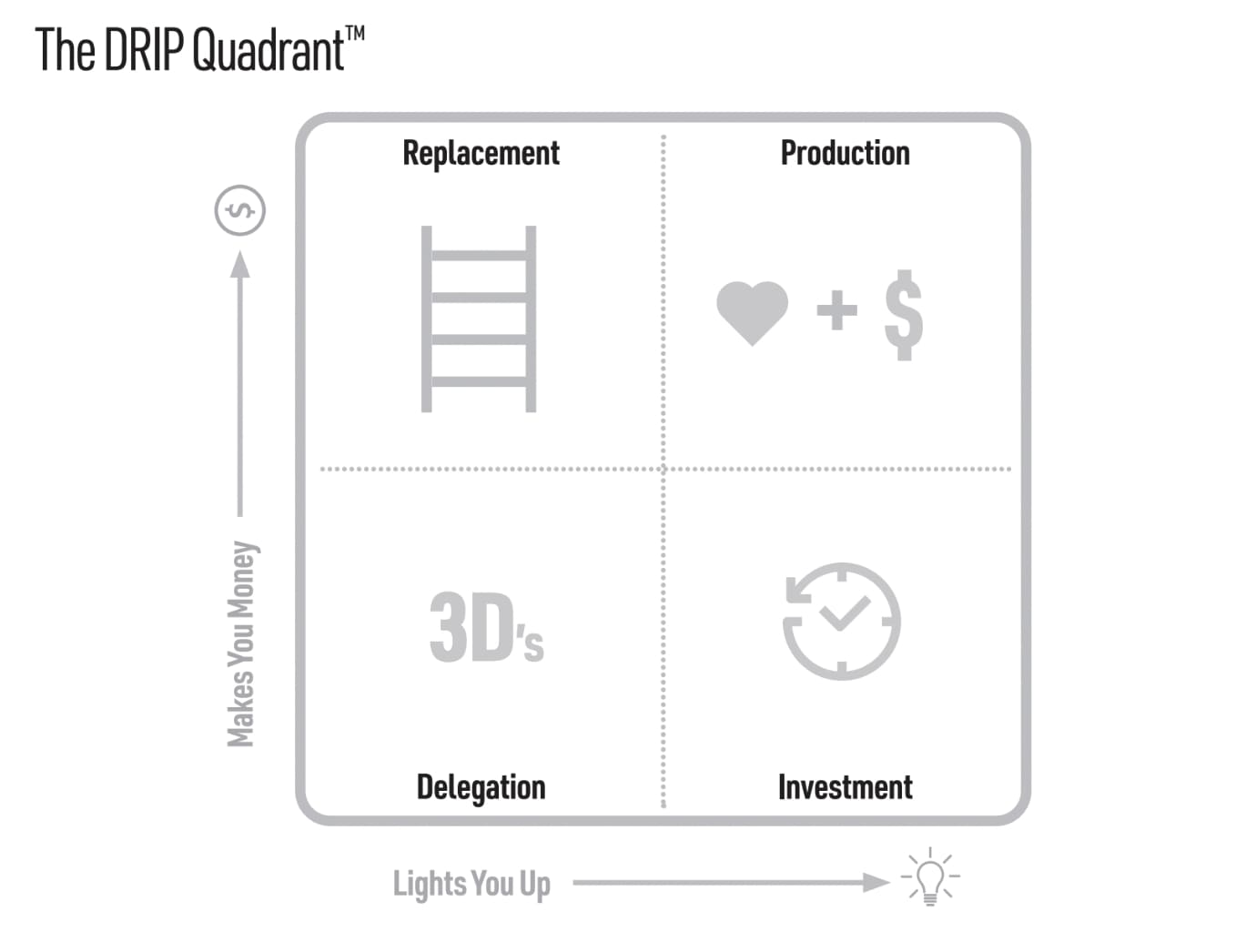For most of us, balancing work, family, fitness, and hobbies feels like an impossible act.
I learned this the hard way when I decided to run two businesses at once.
Suddenly, I was juggling twice the responsibilities with the same 24 hours in a day. My personal life started to suffer as work consumed more and more of my time.
That’s when I realized I needed to plan my days better if I wanted to avoid burnout and regain balance.
The truth is, if you’re not tracking and planning your days, you’re getting scammed out of time — time you could use to do more of the things you love, make progress, and better yourself.
I’ve found bits and pieces from different people I look up to — namely Alex Hormozi and Dan Martell — on this exact issue.
Alex Hormozi: Simplicity Breeds Success
Alex Hormozi, the guy who built a $100 million business by age 30, doesn't swear by elaborate morning routines or complex productivity hacks. His approach? Keep it simple and focus on what matters.

Hormozi flips the script on typical advice. Instead of setting a wake-up alarm, he sets a bedtime alarm. He eats the same meals daily to reduce decision fatigue. Before bed, he plans out his next day, eliminating the morning "What should I do?" paralysis.
Plus, Alex skips the typical morning rituals. No affirmations. No meditation. No sauna sessions. He just wakes up and gets to work. These uninterrupted morning hours are when he’s building his business empire.
Personally, I've learned to cut out a ton of "fluff" following Alex.
Dan Martell: Mastering Time and Energy
Dan Martell wrote a wonderful book called "Buy Back Your Time", which I can't recommend enough. It teaches you when to outsource and how to prioritize tasks.
It is by far the best book I've read in 2024.
His DRIP Quadrant is especially genius. It stands for Delegation, Replacement, Investment, and Production. This tool helps you decide which tasks to keep or delegate.

For example, I used to spend hours planning my week as some weeks I have +20 meetings. This doesn't light me up nor makes me money. It requires keeping track of numerous moving parts and deadlines. Using the DRIP Quadrant, I realized this was a prime task to delegate to technology.
Martell's thoughts on time vs energy management were eye-opening too. He argues that managing your energy is more important than managing your time.
This made me rethink my work patterns. Now, I tackle high-impact tasks when my energy is highest, usually in the morning. Then scheduling meetings and low-effort tasks for later during the day. It's made a huge difference in my productivity.
To wrap this way of working up, I use Motion (free trial available btw) to plan my day. I input all my tasks, rank what's important, and let the app optimize my schedule. This automation handles the complex parts of planning, allowing me to focus on high-impact work.
I fight tooth and nail to keep Tuesdays and Thursdays meeting-free. These are my "get stuff done" days.
My target is 2 hours of heads-down work on Monday, Wednesday, and Friday. On Tuesdays and Thursdays, I aim for at least 4. Why? Because my week is packed with meetings - team strategy sessions, coaching the team, chasing new deals, checking in with clients. That's all important, but it's not what I call deep work.
This setup keeps me sane while running two businesses. It's not perfect, but it works for me. If you're drowning in tasks and meetings, give it a shot. You might be surprised how much you can get done when you carve out real focus time.
Tips to Supercharge Your Productivity
You've seen how I structure my days and adapt ideas from successful entrepreneurs. Here are a few more tips to help boost your productivity and output:
Sprint through tasks
Set a timer for 10 minutes and race against the clock on a single task. You'll be amazed how much you can get done when you're laser-focused. Often, what you think will take an hour gets knocked out in these quick sprints.
Get moving
Stand up and walk around every hour, even if it's just for a couple minutes. Your mind will clear, ideas will flow better, and you'll come back to your desk recharged.
Plan ahead
Map out your week days in advance. It gives you a bird's-eye view of what's coming and helps spot potential conflicts or overloaded days before they happen.
Easy calender booking links
With a tool like Motion, which connects to your calendar (and even checks multiple calendars simultaneously), scheduling meetings becomes super easy. You can quickly create 15, 30, or 60-minute booking links to share with others.
Preview your day
Every night, take a quick look at your calendar for the next day. It helps you mentally gear up for what's ahead. No surprises means you start the day focused.
Use the "eat the frog" technique
Tackle your toughest task first thing in the morning. It sets a productive tone for the day and prevents that dreaded task from looming over you.
Embrace imperfection
Don't get hung up on making everything perfect. Focus on getting things done. Perfect is the enemy of done, and done is what moves the needle in business.
Learn to delegate
This might be tough at first. But remember, you can't do everything yourself if you want your ventures to grow. Start small, but start delegating. It's key to scaling. I recently started hiring VA's (virtual assistants) and it's been a gamechanger.
Action, Set, Go
Juggling multiple responsibilities requires a thoughtful approach. Start by simplifying your routine like Hormozi and prioritizing tasks using Martell's DRIP Quadrant.
Use tools like Motion to automate your scheduling. Carve out dedicated focus time in your week.
Implement the quick tips I’ve shared - from 10-minute sprints to regular breaks and advance planning.
Remember, productivity isn't one-size-fits-all. What works for me might not work for you. The key is to experiment, find what clicks, and build habits that support your goals and lifestyle.


